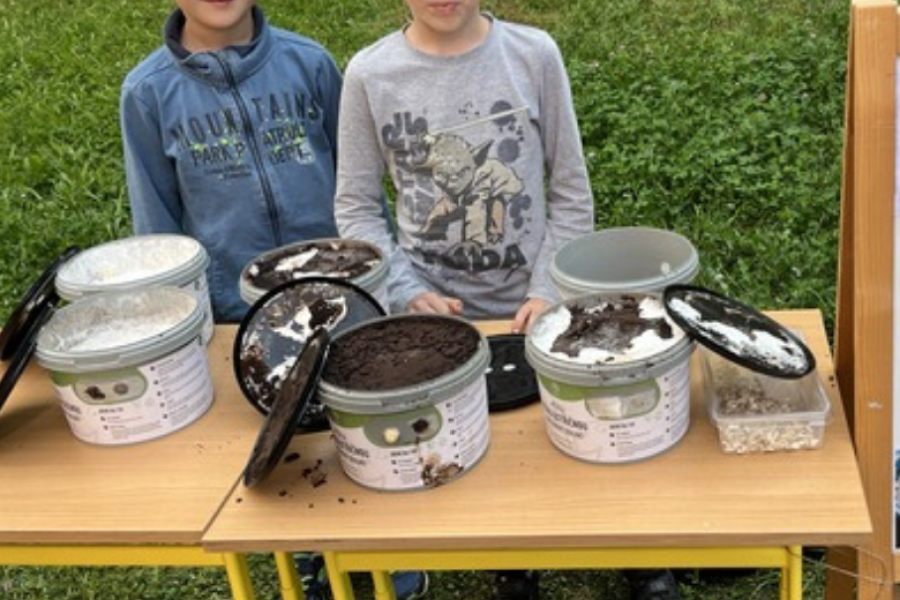
The problem
The activity of growing and observing oyster mushrooms addresses several educational and environmental objectives. By engaging in hands-on cultivation, students learn about the life cycle of fungi, fostering scientific curiosity and understanding. Additionally, the use of coffee grounds as a substrate provides an eco-friendly solution for waste reduction, turning it into a valuable resource for mushroom cultivation.
The project promotes sustainability education, encourages a connection with nature, and instills an appreciation for locally sourced, homegrown produce among young learners.
The solution we used
The activity employs a hands-on solution by engaging students in growing and observing oyster mushrooms. By repurposing coffee grounds as a substrate, it addresses waste reduction while offering an eco-friendly cultivation method. The weekly care routine instills responsibility, and the integration of harvested mushrooms into kitchen activities promotes sustainability and local sourcing, fostering a holistic approach to education and environmental awareness.
Implementation
- Introduction of Materials:
- Students are introduced to the materials needed for mushroom cultivation, including coffee grounds and fungal inoculum.
- Preparation of Special Boxes:
- The students actively participate in adding the first batch of coffee grounds and fungal inoculum to special boxes designed for mushroom growth.
- Observation and Feeding Schedule:
- Students follow a weekly schedule to observe and feed the growing fungus, providing a hands-on learning experience as they witness the different stages of mushroom development.
- Harvesting and Drying:
- Once the oyster mushrooms have matured, students participate in the harvesting process. The harvested mushrooms are then dried for future use in the kitchen.
- Participation in Garden Festival:
- Students showcase their cultivated oyster mushrooms at the garden festival, providing an opportunity to share their learning experiences and achievements with the school community.
Evaluation
- Educational Impact:
- Assess the extent to which the students gained understanding and knowledge about the life cycle of fungi, cultivation processes, and the environmental benefits of reusing coffee grounds.
- Student Engagement:
- Evaluate the level of engagement and interest demonstrated by the students throughout the various stages of the activity, including the preparation, observation, and harvesting.
- Hands-on Learning Experience:
- Consider how effectively the activity provided a hands-on learning experience, allowing students to actively participate in the cultivation process and fostering a deeper understanding.
- Sustainability Awareness:
- Examine the impact of the activity in promoting awareness of sustainable practices, particularly the reuse of coffee grounds, and whether it influenced students' attitudes toward waste reduction.
- Integration with Curriculum:
- Determine how well the activity was integrated into the curriculum, ensuring alignment with educational goals and objectives.
- Showcasing at Garden Festival:
- Assess the success of showcasing the cultivated oyster mushrooms at the garden festival, including the level of community engagement and the effectiveness of communication about the project.
- Long-Term Learning:
- Consider whether the knowledge and awareness gained through the activity have had a lasting impact on students' understanding of sustainability and healthy living.
- Feedback from Students and Teachers:
- Collect feedback from both students and teachers to understand their perspectives on the strengths and areas for improvement in the implementation of the oyster mushroom cultivation activity.
